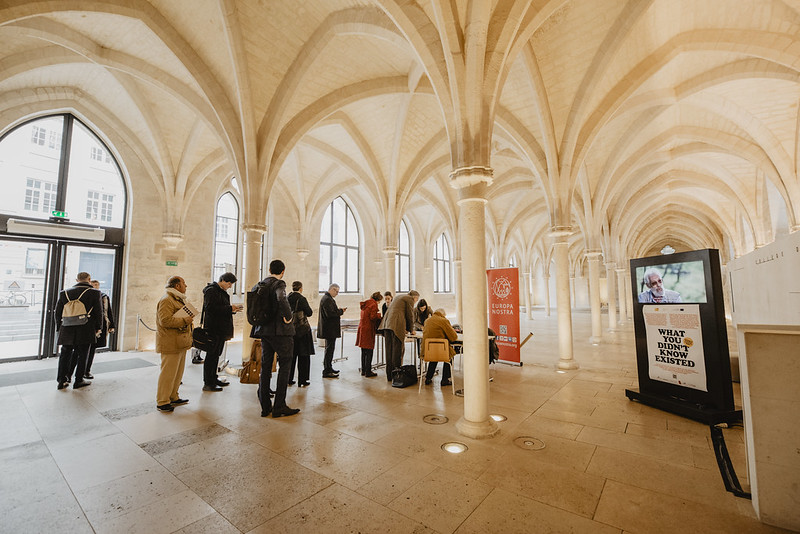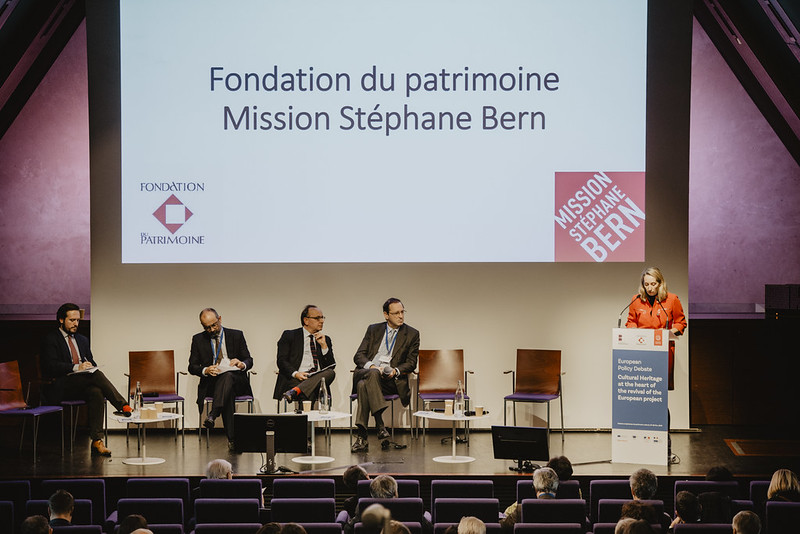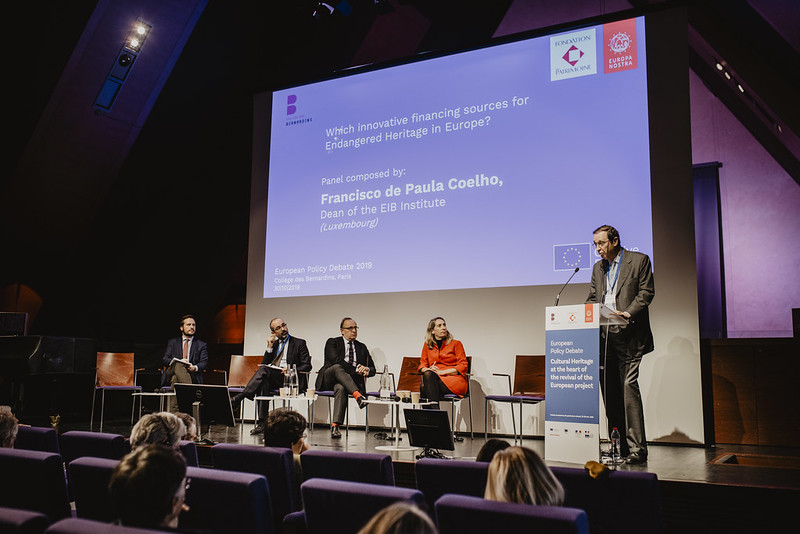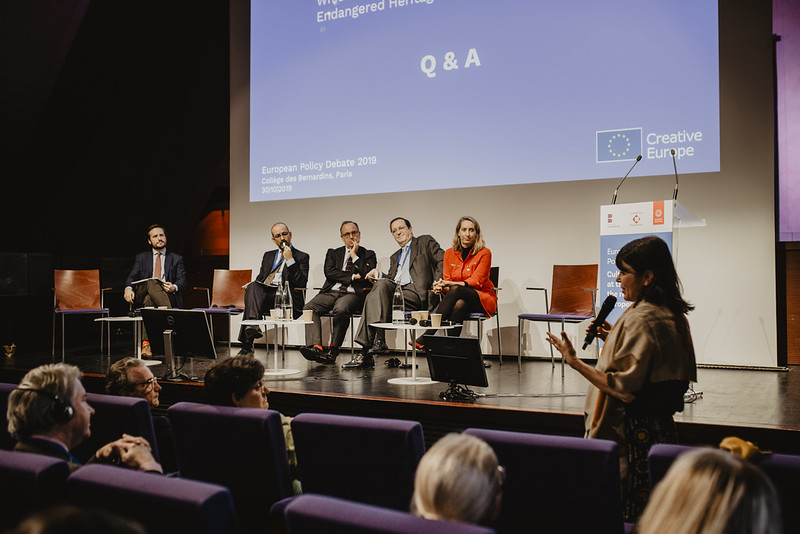Policy Debate: Which innovative financing sources for Endangered Heritage in Europe?
Session IV ‘Which innovative financing sources for Endangered Heritage in Europe?’
The closing event of the European Cultural Heritage Summit 2019 in Paris was the European Policy Debate “Cultural Heritage at the Heart of the Revival of the European Project”, organised on October 30 as a co-production of Europa Nostra and the Collège des Bernardins and its research centre on Europe, in partnership with the Fondation du Patrimoine. For the five different sessions of the Policy Debate, participants gathered at the Collège des Bernardins, – just a few metres away from Notre-Dame Cathedral – to discuss some of the most pressing challenges which Europe and its citizens are facing, and reaffirm the significance of shared heritage assets for the future of the European project.
The fourth panel was entitled ‘Which innovative financing sources for Endangered Heritage in Europe?’. The panel provided a platform to discuss the role of private foundations and lottery schemes for saving Europe’s endangered heritage. This discussion was inspired by the successful launch of the “Loto du patrimoine” in 2018 in France, as well as by the Notre Dame Cathedral disaster and the “Plus jamais “ (“Never Again”) campaign deployed by the Fondation du Patrimoine subsequently. The panel also explored synergies between various initiatives, including the “7 Most Endangered” programme which Europa Nostra has been running in partnership with the European Investment Bank Institute since 2013.
The panel was moderated by Alexandre Giuglaris, responsible for Public and Institutional Affairs at the Fondation du Patrimoine.
The panel was introduced by a keynote speech by Célia Vérot, Director General of the Fondation du Patrimoine, who presented the key actions and business models in place at the Fondation du Patrimoine to secure innovative financing sources for cultural heritage. She called attention to the fact that many heritage sites in France are endangered due to neglect or decay. Some 3,000 endangered heritage projects are carried out yearly by the Fondation du Patrimoine; 3, 110 sites at risk have been submitted in the frame of the Mission Stéphane Bern; and according to the French Ministry of Culture, around 5, 000 heritage sites are in a degraded state. These numbers, she added, represent between 5 and 10% of the total listed heritage in France. While EUR 1 to 2 billion would be necessary to save these sites, Célia Vérot noted that the problem at stake does not lie in the lack of financial resources. To demonstrate this, she presented three different cases of endangered sites that have been saved thanks to the action of the Mission Stéphane Bern and Fondation du Patrimoine: the Viardot Villa in Bougival, the house of Pierre Loti in Rochefort and the house of Antoine de Saint-Exupéry in Saint-Maurice-de-Rémens.
Valéry Freland, Executive Director of ALIPH – International alliance for the protection of heritage in conflict areas took the floor to recall the importance of private-public partnerships as well as multilateralism to secure funds for cultural heritage. He also stressed the need to protect cultural heritage outside Europe as an important priority of the EU external cultural relations with the rest of the world.
Miguel Magalhães, Director of the Paris Office of the Calouste Gulbenkian Foundation highlighted the importance of financing cultural heritage-related projects, not only due to its intrinsic value, but also as a fertile ground for artistic creation, where the dichotomy between past and future is outdated. He stressed the pivotal role of Foundations as natural partners of States and as allies of civil society, which is the main beneficiary of the actions undertaken by private foundations. He recalled the need for collaborative approaches in heritage financing, instead of top-down and uni-directional ones.
Francisco de Paula Coelho, Dean of the European Investment Bank (EIB) Institute reminded the role of the EIB as the largest multilateral lender in the world, providing each year circa EUR 80 billion in financing and technical expertise to projects contributing to achieving EU key priorities. Safeguarding and enhancing Europe’s cultural heritage are among these key priorities, in particular since heritage can contribute to enhancing territorial cohesion, he added. Since its creation, the EIB has invested over EUR 1, 200 million in cultural heritage, out of which EUR 400 million were invested in the last 8 years. He also stressed the importance of the work carried out in the framework of the “7 Most Endangered” programme, run by Europa Nostra in partnership with the EIB.
The panel was followed by a lively discussion between the speakers, moderators and the audience. A graphic facilitator illustrated the debate.
More information
Watch the full video of this session here.
Read more on the European Policy Debate here.
Consult the Programme booklet of the European Policy Debate (in English and French). The programme booklet only exists in electronic version. Every unprinted booklet helps the environment.













